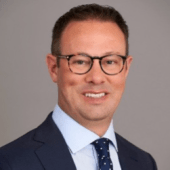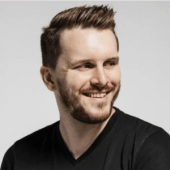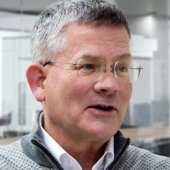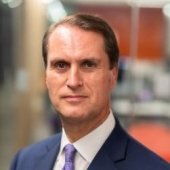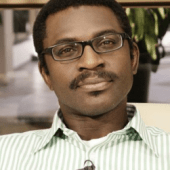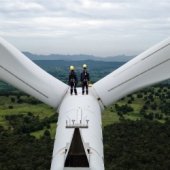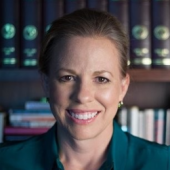IN BRIEF
- 6:50 - You look at loss of species and you look at, say, 1970 to 2016, we lost 68% of nature, of wildlife on this planet of ours. […] No way can we say we’ve succeeded, but we have broken into the world of business. We have got CEOs, and other members of the sort of global C-suite, if I can call it that, and financial institutions and so on, paying a lot more attention than they once did but in a way, they need a lot more backing from government to make this stuff happen in a sustainable way.
- 14:15 - I think population needs to be a primary consideration, but people often said population numbers actually wouldn’t matter if we were living at relatively low levels of, for example, environmental and social impact. The uncomfortable fact is that as modern consumerist lifestyles are spread around the world, that population growth is massively amplified. I think the lifestyle consumption patterns, how we produce a range of goods and services, all of that remain absolutely crucial, have to remain in the spotlight.
- 21:55 - People increasingly talk about the Anthropocene where one species, which is ours, has for the first time in the planet’s history impacts on the planet which are akin to geological forces. We haven’t got the governance systems. We haven’t got the politics yet to cope with that, but we’re going to have to develop them in very short order and I think business has a crucial role in not only making sure that those evolve in the right way but whether they’re implemented, put into practice.
John Elkington is a businessman, visionary and a global authority on corporate social responsibility and sustainable capitalism. He is the author of 20 books, his latest being Green Swans: The Coming Boom in Regenerative Capitalism. In this video, Elkington sits down with Joe Kornik, Editor-in-Chief of VISION by Protiviti, to talk about the origins and evolution of corporate social responsibility; the challenges of accelerating population growth and climate change, the opportunities humanity cannot afford the miss, and how business can assume the leadership role in solving our most pressing problems.
Video transcript
Joe Kornik: Welcome to the VISION by Protiviti Interview. I’m Joe Kornik, Editor-in-Chief of VISION by Protiviti, our global content initiative examining big themes that will impact the C-suite and executive boardrooms worldwide.
Today, we’re exploring the future of ESG and its implications for the next decade and beyond, and what a guest we’ve got for you today as I’m joined by John Elkington. John is an award-winning world authority on corporate responsibility and sustainable capitalism, a best-selling author, speaker, and serial entrepreneur. John is the founder of Volans, which works with leaders to make sense of the emerging future to unlock the potential of their organizations.
John, a former faculty member of the World Economic Forum, has helped create and incubate movements including the Dow Jones Sustainability Indices and the Global Reporting Initiative. In 2009, John was ranked fourth in a global survey of the planet’s top 100 CSR leaders behind only Al Gore, Barack Obama, and Anita Roddick. Just last year, John won the World Sustainability Award. He has spoken at more than 1,000 conferences, has served on over 70 boards, and has written 20 books, the latest being Green Swans: The Coming Boom in Regenerative Capitalism.
John, thank you so much for joining me today.
John Elkington: Joe, well, thanks very much for the invitation. I’m looking forward to the conversation.
Joe Kornik: Well, John, that’s a bit of a lengthy introduction and believe me, I left out quite a bit but it has been a lengthy career. You’ve been at this now since the 1970s, and it’s rare I’ll have the opportunity to talk to someone with your historical perspective about ESG and sustainability.
If I could start with asking you to talk a little bit about the evolution of the topic over the course of your career and maybe sort of where we are now and that can lead us into the future.
John Elkington: Well, happily. 2022 is the 50th year that I’ve worked in this space, so half a century. It surprises even me. But when I started in the mid-70s to write about what business was doing, I found very few businesses were prepared to talk about what they were doing on safety, health, environment, these sorts of issues. In 1978, with others, I set up a company called Environmental Data Services to begin to break into the world of what we then called industry and commerce. It became known as business later on, and over the next couple of years, we find ourselves in a rather unexpected position of having to help companies like BP and chemical companies and so on write their first written environmental policy statements. So that was then. Business was on the defensive, thought that anyone that’s an environmentalist was actually a communist in disguise. That’s no longer the case. It is amazing how much things have shifted.
What started to happen in the late 80s, early 90s was that business started to see this as an engineering set of challenges. The World Business Council for Sustainable Development talked about eco-efficiency, so how do you save or make money by cutting pollution, cutting energy use, and so on? None of that bad, all of that good, but what it did was to constrain this to pollution prevention and areas like this. In 1994, I started to talk about a triple bottom line, sort of economic, social, and environmental performance by companies; economic, social, and environmental value either created or destroyed. In a way, ESG is a direct-line descendant of all of that. It’s remarkable to see how that agenda has taken off in just the most recent times.
I think it’s a bit of a feeding frenzy. Every financial fund now needs to have its own investment fund with ESG labeling. What we’re seeing just towards the conclusion is that a lot of that activity is, let’s say, a little bit ill-considered in the sense that when the European Union came up with its taxonomy of terms in this space, something like €2 trillion worth of investments had to be stripped of the ESG label because they just simply weren’t delivering against that explicit or implied promise. We now start to see the pushback against ESG from Texas and Florida and various other places, but in a way that’s inevitable. Every action triggers not always an equal but certainly an opposite reaction, so it’s getting even more interesting by the day at the moment.
Joe Kornik: Yes, it sure is. ESG is having its moment, but I think as you pointed out, what comes with that is often the pushback, right, when it’s that much under the microscope. I’m just curious to your thoughts on how you think what we’re doing right now. Where do you see the biggest challenges or opportunities as we move forward and are you generally optimistic about the future?
John Elkington: If I had £50.00 for every time I have been asked the “Are you optimistic?” question, I could sort of have retired 50 years ago. The answer is, I was born an optimist. You have to be an optimist in order to work in the change area or industry almost as it has become, but at the same time you have to be reasonably clear and then you have to be able to look at the world as it is rather than you would like it to be. The climate agenda, even though some people are still keen to deny it even exists, has become strikingly clear to most thinking people. Whether it’s floods or droughts or fires or whatever it is or growing intensity storms, this is with us and it’s going to get much more intense over time.
If I look at that, I feel that has been a relative failure. I wrote my first book on—no, first report—on climate change back in 1978, so it has been a long time building this agenda. At the same time, you look at loss of species and you look at, say, 1970 to 2016, we lost 68% of nature, of wildlife on this planet of ours. There’s no way—and that continues. That accelerates in many ways. No way can we say we’ve succeeded, but we have broken into the world of business. We have got CEOs, and other members of the sort of global C-suite, if I can call it that, and financial institutions and so on, paying a lot more attention than they once did but in a way, they need a lot more backing from government to make this stuff happen in a sustainable way, and maybe the Inflation Reduction Act in the United States is part of that. Maybe the EU Green Recovery Initiative is part of that. Certainly, very large sums of money are now going in this direction, but I think in a way we’re only scratching the surface where we’re just getting started.
Joe Kornik: You’ve mentioned the business and government and it strikes me these big problems will obviously not be solved by just one side or the other, right? Business alone or government alone is not going to be able to tackle this. I think it’s going to take some combination of the two, and that’s clearly where you’ve spent the majority of your career in that space. Talk to me a little bit about the role of business in solving some of these global challenges and what can and should business leaders be doing to take next steps and prepare their businesses for the future.
John Elkington: Well, I’ve spent the first five years or so of my working life working with governments—EU and the UN institutions and OECD and so on—all of which was interesting, I learned a lot. But what I’ve learned in the midst of all of that was that unless and until business becomes energetically and creatively involved in this space, it’s not going to proceed in the ways that we want it. I have friends in, for example, Greenpeace who would say, “All we’ve got to do is strap these corporate giants down and pin them down so they can’t move.” My answer then, and it still is, that unless and until—again, you can trigger their innovation process and you really tap into their creativity—we’re not going to get some of the nature and scale of change that we needed.
And I’ve said, and I think that business is much more open now that it once was, and one of the reasons for that is we’re not dealing with the same people that we once did. Those people are rather retired or dead now and we’re probably, in business generations, talking about three to four generations on. These people have been trained differently, not well enough yet but they have been trained and if they’re not brain-dead, they’re awake, alert to all of these different issues, challenges, opportunities, depending on which way we look at them.
I think what’s also changing is that business is suddenly seeing that this has to be done even if financial markets do not always yet support them in doing what has to be done. They now have a role in lobbying financial institutions to pay attention to some of this stuff, and even if governments do not yet do enough to really drive this forward in a structured and cohesive way, then business itself has a legitimate role in lobbying government to shake markets. People often think, talk about free markets. Markets are social constructs where governments have been very actively involved in shaping markets for a very long time. Now, they just got to do it but they got to do it better. They’ve got to do it in different ways.
Joe Kornik: Right. You mentioned leadership there and the business leaders that are leading. I’m curious about your thoughts on preparing tomorrow’s leaders for a career or leading through this next challenge that we have, your thoughts on B-schools and how we maybe prepare the next generation of leaders when it comes to sustainability.
John Elkington: Well, a lot of people tend to think if not say, and some of them do say it, that we haven’t got time to educate the next generation. We just got to do it now. I think education remains the single most important investment that we make as societies and ultimately as a species. You ask about business schools, and I’ve taught in universities and business schools now for well over 25 years. Initially, particularly with the B-schools, I found that the students were often interested and there might be one or two faculty members who might be interested, but the broader faculty members were really not interested at all and felt this was like a fast track to sort of Siberia in academic terms, and you had the ranking and rating schemes which then did not prioritize or even particularly value effort in this space.
That is changing. I think people are recognizing that this is—the dean of the Wharton School told me about 15 years ago—I’ve been in a session at the Wharton School with about 60 academics from business schools around the world, and at the end, he said, “This is the future of business education.” Well, I believe it is. I think it’s taking rather longer than he might have expected and certainly than I and people like me might have wanted. But I think, increasingly, business schools will have to invest in this space and we see growing evidence of that, not least because the people who employ the people at the business schools’ training are going to insist on this. They’re going to absolutely want this as part of the skill set of the people that they take on. It has taken a long time and it’s going to take quite a long time still, but it’s going to happen and a lot of business schools will actually find themselves wrong-footed when suddenly their competition is doing this stuff in very much more coherent ways.
Joe Kornik: Sure, and it strikes me that the students are thirsty for this as well or are going to be demanding this type of training and this type of leadership development.
John, you mentioned that from a climate perspective, you mentioned the loss of species and just some really scary, scary things. I wonder if I could ask you as you look forward, what are the biggest threats? Is it drought? Is it food scarcity? Is it land restoration? We’ve got a lot on our plate. Are there one or two areas that you think we really need to be laser-focused on right now?
John Elkington: Well, it’s interesting because some of the more radical people in the sustainability and environmental movements would at this point say it’s population, it’s population, it’s population, and there’s certainly truth in that. When you go to places like Nigeria, it’s hard to be optimistic about a country like that because of just the sheer scale of population growth. But as you know, Joe, countries around the world, you look at China, you look at Japan, you look at Italy, they’re increasingly concerned about population decline, and in some cases, almost collapse. I think population needs to be a primary consideration, but people often said population numbers actually wouldn’t matter if we were living at relatively low levels of, for example, environmental and social impact. The uncomfortable fact is that as modern consumerist lifestyles are spread around the world, that population growth is massively amplified. I think the lifestyle consumption patterns, how we produce a range of goods and services, all of that remain absolutely crucial, have to remain in the spotlight.
A lot of people are seeing technology as—it used to be that they would see technology as the great Satan. Whether it was chemistry or whatever it was, it was going to do great damage to the wider world and there’s no question that burning fossil fuels and all the rest of it has done precisely that, and insecticides and all the rest of it. I think the new raft of technologies that are all coming in at the same time, and they’re pretty much all digital, have a huge potential for shifting the needle on some of this, reducing our collective impact and footprints. Among the number, I would put things like synthetic biology, not loved by everyone but nonetheless; artificial intelligence, not loved by everyone but nonetheless; and things like new materials, including nano materials, again, not loved by everyone. But that’s always the case: When you have a new industrial revolution or, in this case, a set of industrial revolutions all coming through at the same time—you think about electric vehicles, you think about battery technology, you think about autonomous vehicles, including autonomous trucks and so on. The loss of employment as some of those new technologies come through, and taxi drivers, and truck drivers and so on, hardly bears thinking about, but we have to think about it. I think we are at the relatively early stages of a massive disruption in our economies which could, if we decided to drive things in that direction, push us towards a much more sustainable set of outcomes.
Question, will we? My sense is that although a lot of the billionaire technologists are talking about this stuff, as a recent book, The Survival of the Richest, shows, many are also thinking about what happens when what we’ve been doing brings collapse? Where do we go? Do we go to New Zealand? Do we go to Patagonia or whatever? There’s a lot of work still to be done and a lot of that is in people’s heads and to some degree in their hearts as well.
Joe Kornik: Right, and it strikes me sort of shifting from the E, the environmental, to the S. It’s like maybe the S is becoming more of a front burner issue than the E on some level because we’re seeing a lot of disruption in society. We’re seeing obviously that the polls have indicated that democracy is getting less and less popular around the planet. We’re seeing a real shift in societal norms. There’s human rights and equity and a lot of these things are top of mind, but I don’t necessarily think that we’ve made a lot of progress on them. From the social perspective, where do you think we go from here?
John Elkington: I think we’re in extremely exciting times in terms of the old Chinese curse, in the sense that every 60 to 80 years, our economies and our societies go through a compulsive period of change, which very often takes at least 12 to 15 years to clear if we’re lucky. I think the social side and I think the political side in all of this is going to be central and considerable in growing concern.
In my most recent book, Green Swans, I talked about three areas which are going to be under intense pressure. The first was capitalism, the second was democracy, and the third was sustainability. Everyone might think that now sustainability is going to crash into the mainstream, but it has in many ways got to be disrupted itself. It’s not necessarily yet fit for purpose and within that, I consider the ESG investing agenda as part of all of that.
I think we couldn’t have got where we need to go if the old order continued just the way on sort of the tramlines that it was operating on. I don’t think the fact that we’re now moving into the unwinding of an old order—which is pretty much post-Second World War, post-UN, and all the rest of it, the UN being founded—I don’t think that the fact that that is unwinding guarantees that we’ll come out the other side with exponential solutions, but actually it really does open the possibility, if we know what we’re doing and we have the courage and stamina to push on the right sort of ways, and don’t just focus on corporate responsibility in individual companies but think about markets, how we structure them in order to drive and encourage companies and businesses to move in the right direction.
I think this is an intensely exciting period. I often say to colleagues I think the next 10 to 15 years, and as I said I’ve been 50 years in this space, the next 10 to 15 years are likely to be the most exciting, the most challenging, and the most politically dangerous of my entire working life. I look forward to it.
Joe Kornik: Yes, that’s interesting, and John, literally that was my last question. I was going to ask you. I say we call this program VISION by Protiviti because we want really smart people to give us their vision of the future and I was going to ask you to look out, let’s say, two decades, 2040 and beyond. I’m not going to ask you if you’re optimistic. You answered that a little bit earlier and I’m not even going to ask you really what’s going to happen, but what kind of world will we be living in at that point?
John Elkington: I think it will be—Dickens talked about the best of all worlds and the worst, and I think it will be better and it will be worse than today’s situation, and a lot of that will depend on us. One of the things I do for my own sense of where we might be headed is to read science fiction. I’ve done that since the 1960s and I fall in and out of love with science fiction. There are periods when it has got a lot of interesting things to say and there are periods when it doesn’t. In the 90s onwards, I would focus, for example, on people like William Gibson who talked about not radically different societies so that’s where he started, 20,000 years in the future with Neuromancer. He was talking about a mutated present, but now we’ve got people who are looking out into the future and are starting to say—people like Kim Stanley Robinson talking about if climate change is this important, what are going to have to do as a species in order to manage this and sort it out? His most recent book was The Ministry for the Future. It has been extraordinary to see how many people in business have been reading that book.
There are growing number of visions out there that are all aligning to some degree around this sense that the combination of population and our economic activity around the planet have created this new geological epoch; people increasingly talk about the Anthropocene where one species, which is ours, has for the first time in the planet’s history impacts on the planet which are akin to geological forces. We haven’t got the governance systems. We haven’t got the politics yet to cope with that, but we’re going to have to develop them in very short order and I think business has a crucial role in, not only making sure that those evolve in the right way whether they’re implemented, put into practice.
The final thing I’ll say is just my vision of the future is shaped by an understanding that very often it’s impossible to predict what will happen when you put people under a lot of pressure. We’re putting people under increasing amount of pressure in these multiple areas. We’re an innovative species. We will come up with all sorts of ruses but also solutions which we’d perhaps never thought of, so again, another reason to be wary about the future but excited about it as well.
Joe Kornik: Yes. Well, thank you so much, John. I enjoyed our conversation immensely. Thanks so much for the time.
John Elkington: A pleasure, Joe.
Joe Kornik: Thank you for watching the VISION by Protiviti interview. Until next time, I’m Joe Kornik. Thanks.
Did you enjoy this content? For more like this, subscribe to the VISION by Protiviti newsletter.




